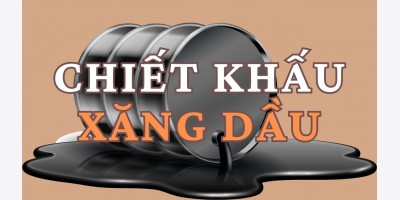Giá dầu tăng nhẹ do Anh- Pháp- Mỹ tổng tấn công Libya
Giá dầu thô phiên châu Á sáng nay Ä‘iá»u chỉnh tăng nhẹ do cục bá»™ chiến tranh ở Libya trở lên tồi tệ hÆ¡n sau khi Mỹ, Anh và Pháp dùng chiến hạm mang đầu hạt nhân và máy bay chiến đấu tổng tấn công Libya. Äó chÆ°a kể là tình hình bạo loạn ở khu vá»±c Bắc Phi và Trung Äông vẫn Ä‘ang diá»…n biến phức tạp, dấy lên nhiá»u quan ngại vá» vấn Ä‘á» nguồn cung dầu sẽ gián Ä‘oạn.
Thị trÆ°á»ng dầu có vẻ nhÆ° Ä‘ang nóng dần lên sau khi tổng thống Libyan - Muammar Qaddafi thá» sẽ đẩy lùi lá»±c lượng liên minh Anh-Mỹ-Pháp ra khá»i đất nÆ°á»›c này. Trong khi Ä‘ó, tại Bahrain, các công nhân thuá»™c công ty dầu khí Bahrain Petroleum Co Ä‘ã biểu tình trong tuần rồi để phản kháng lại sá»± Ä‘àn áp của cảnh sát đối vá»›i những ngÆ°á»i biểu chống chính phủ. Yemen cÅ©ng ban bố tình trạng báo Ä‘á»™ng Ä‘á».
Vào lúc 8h35 sáng nay (giá» Việt Nam), giá dầu thô WTI giao kỳ hạn tháng 04 Ä‘ã nhích lên mức 103,09 USD/thùng, tăng 1,82 USD so vá»›i Ä‘óng cá»a hôm thứ Sáu cuối tuần. Hợp đồng dầu WTI giao kỳ hạn tháng 04 sẽ hết hạn vào tối mai, nhÆ°ng hợp đồng giao tháng 05 Ä‘ã được mở và tăng 2,20 USD lên 104,05 USD/thùng.
Còn giá dầu thô Brent giao kỳ hạn tháng 05 cÅ©ng Ä‘ã được kích hoạt tăng 2,26 USD (2%) lên mức 116,19 USD/thùng.
Sản lượng dầu của Libya hiện xuống dÆ°á»›i mức 400.000 thùng/ngày, tức giảm khoảng 1/3 so vá»›i trÆ°á»›c khủng hoảng. Tình hình biểu tình Ä‘ã xuất hiện ở nhà máy lá»c dầu, cho thấy khả năng sẽ lan ra trên diện rá»™ng và có thể sẽ cắt đứt nguồn cung, Shokri Ghanem, chủ tịch của National Oil Co cho biết.
Oil Rises After Military Strikes Against Libya, Mideast Unrest
Share Business ExchangeTwitterFacebook| Email | Print | A A A
By Ben Sharples
March 21 (Bloomberg) -- Oil climbed in New York after the U.S., U.K. and France launched cruise missiles and airstrikes at targets in Libya and as continuing unrest in the region renewed concerns the turmoil may spread and disrupt supplies
Futures advanced as much as 2.1 percent after Libyan leader Muammar Qaddafi vowed to repel allied forces pounding military installations. Ninety percent of Bahrain Petroleum Co.’s employees went on strike last week in response to a police crackdown on anti-government demonstrations, while Yemen declared a state of emergency on March 18.
“Bahrain is more of the hotspot rather than Libya,” said Jonathan Barratt, managing director of Commodity Broking Services Pty in Sydney. “The focus will have to be on Saudi Arabia and Iran, that is where the powder keg is at the moment and it’s based on Bahrain.”
Crude oil for April delivery gained as much as $2.12 to $103.19 a barrel, in electronic trading on the New York Mercantile Exchange, and was at $102.71 at 10:17 a.m. Sydney time. The contract, which expires tomorrow, dropped 35 cents to $101.07 on March 18. The more-actively traded May contract rose as much as $2.20 to $104.05.
Brent crude oil for May settlement increased $2.26, or 2 percent, to $116.19 a barrel on the London-based ICE Futures Europe exchange. The contract fell 97 cents, or 0.8 percent, to end the session at $113.93 a barrel on March 18.
No-Fly Zone
A no-fly zone is now in place over Libya, Admiral Mike Mullen, chairman of the U.S. Joint Chiefs of Staff, said yesterday. The coalition ordered Qaddafi to withdraw his forces from major cities after weeks of fighting with rebels that has left hundreds dead in the bloodiest of popular uprisings to have swept the Middle East this year.
Bahrain’s government declared a three-month state of emergency on March 15 after troops from Saudi Arabia and other Arab Gulf states arrived to support the administration in quelling more than a month of protests led by the Shiite Muslim majority, which is calling for democracy and civil rights in the Sunni-ruled kingdom.
Libyan output has fallen to less than 400,000 barrels a day, about a quarter of the production before the crisis, and may stop, Shokri Ghanem, chairman of Libya’s National Oil Co., said on March 19. The country produced 1.59 million barrels a day in January, according to estimates compiled by Bloomberg.
There is no need to call a special meeting of the Organization of Petroleum Exporting Countries to address the situation, said Abdullah Al-Attiyah, Qatar’s deputy prime minister and former oil minister.








